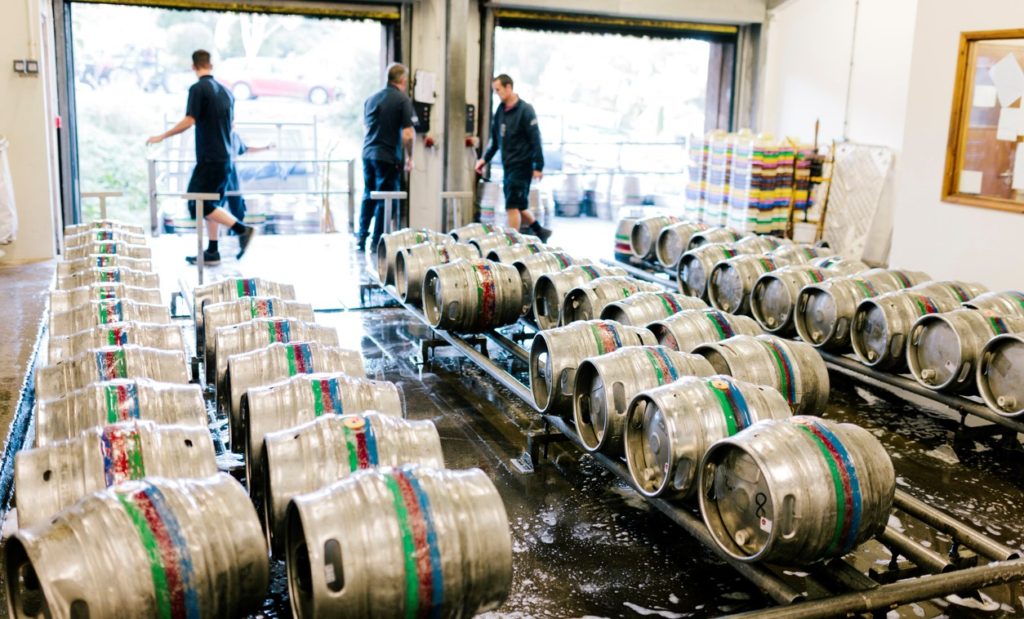Beverage Alcohol Tax Compliance Insights for 2022


Your beverage alcohol seller clients likely face increased scrutiny in 2022 to ensure they’re complying with federal, state, and local tax requirements.
We predict continued proliferation of marketplaces and delivery apps, leaving states to grapple with regulation. States that have hesitated to take a stance on takeout and delivery sales are likely to make a decision, while states prohibiting direct-to-consumer sales of spirits will feel the pressure to ease existing rules.
States could strive to better understand the role of fulfillment houses and determine whether they’d benefit from additional regulations. Finally, there could be legal movement on discriminatory retailer direct-to-consumer laws in 2022. Read on for more details.
Prediction 1: Marketplace and Delivery Apps Stay Hot
On April 9, 2020, online restaurant bookings fell from millions to zero as lockdowns established to slow the spread of COVID-19 took effect across Australia, Britain, Canada, Germany, Ireland, Mexico, and the United States. Takeout and delivery sales of food and alcohol helped many restaurants survive and led to a surge on the marketplace and delivery apps that connect businesses in the industry with hungry and thirsty consumers.
Jeff Carroll, general manager of beverage alcohol at Avalara, believes use of delivery apps and third-party providers (TPPs) will continue to grow, while “alcohol agencies will continue to wrap their arms around the regulation and enforcement of these third parties.” Alcohol agencies basically have two options:
- Take a light touch but ensure delivery apps and TPPs don’t deliver alcohol to minors
- Require TPPs and delivery services to be fully licensed and regulated
Prediction 2: States Will Choose “Open” or “Closed” Cocktails to Go
Many state and local governments allowed restaurants, bars, breweries, distilleries, wineries and even certain stores to sell alcohol for delivery or takeout during COVID-19 lockdowns. In many instances, this included cocktails.
A handful of states let their temporary cocktail-to-go policies sunset, but several states extended them, and as of this writing, 19 states and the District of Columbia have made them permanent. As the COVID-19 pandemic transforms into something more endemic, look for the undecided states to determine the fate of their cocktail-to-go policies.
Prediction 3: Spirits Businesses Will Push for More DTC Rights
Wine sellers currently comprise the largest segment of the direct-to-consumer (DTC) market. In the coming year, businesses in the spirits industry will continue to lobby for similar DTC rights. Momentum for this is already growing.
For example, Kentucky opened the DTC market to in-state breweries and distilleries in 2020; several states temporarily authorized direct shipments of spirits during COVID-19 lockdowns; and the California Legislature is considering a measure that would grant direct shipper permits to beer manufacturers and distilleries. Like their wine-imbibing counterparts, spirits enthusiasts nationwide want to be able to purchase premium products not available locally.
They also crave the click-and-deliver convenience they enjoy with other products. With delivery and takeout sales of cocktails now legal in a growing number of states, resistance to DTC spirits sales may be waning.
“Although distilleries didn’t add any new states in 2021,” says Carroll, “we expect substantial legislative action in 2022 and think a few states may get added to the spirits DTC roster this year.”
Prediction 4: Fulfillment House Haws Will Face More Scrutiny
Fulfillment houses play a critical behind-the-scenes role in DTC sales, storing alcohol for producers, preparing it for shipment, and transferring it to common carriers for broader distribution. In Tennessee alone, they’ve a hand in roughly 60 percent of DTC wine shipments. Yet despite widespread use, their role is often misunderstood by some key players, including legislators.
Due to such misunderstandings or oversights, fulfillment houses cannot make DTC shipments in Oklahoma. They were temporarily banned in Kentucky and almost banned in Tennessee. With DTC sales expected to grow in the coming years, more states will likely examine fulfillment houses in 2022 and perhaps regulate what they can and can’t do.
Carroll says, “Fulfillment houses are commonly misunderstood in the alcohol shipping world and opponents of DTC have latched on to this issue as a priority, so we expect several more states to take a closer look at whether these businesses should be licensed.”
Bonus Prediction: Retailers Get the Circuit Split They’re Looking For
Since the Supreme Court’s decision in Tennessee Wine & Spirits Retailers Assn. v. Thomas (2019), wine retailers have made an aggressive push to challenge state laws with discriminatory retailer DTC laws. 2022 could be the year wine retailers get the coveted circuit split (two or more circuits in the U.S. court of appeals reach opposite interpretations of federal law) en route to a possible reconsideration by the Supreme Court.
“The Supreme Court has not seemed eager to take up the retailer shipping issue and has so far denied certiorari,” explains Carroll. “A circuit split would put pressure on SCOTUS to take up the case and settle the issue once and for all.”
What’s Next?
With global beverage alcohol ecommerce sales are on track to exceed $42 billion by 2025, and the U.S. is poised to become the world’s largest ecommerce market for alcoholic beverages, businesses in the industry face increased opportunities — and scrutiny.
Growing tax requirements and complexity could become a major hurdle to business expansion in 2022 and beyond. One sure way to overcome tax challenges is to keep informed of tax policy and regulatory changes in markets where your clients sell.

